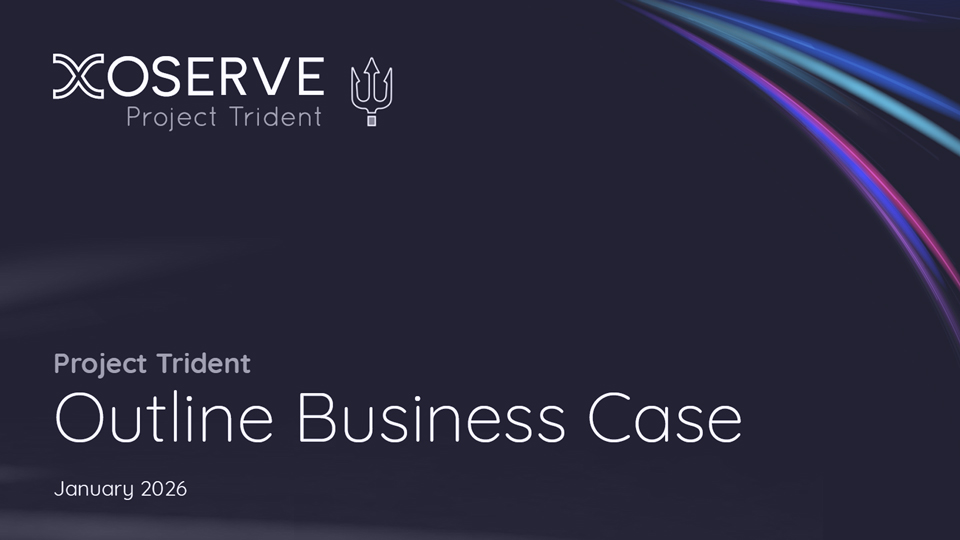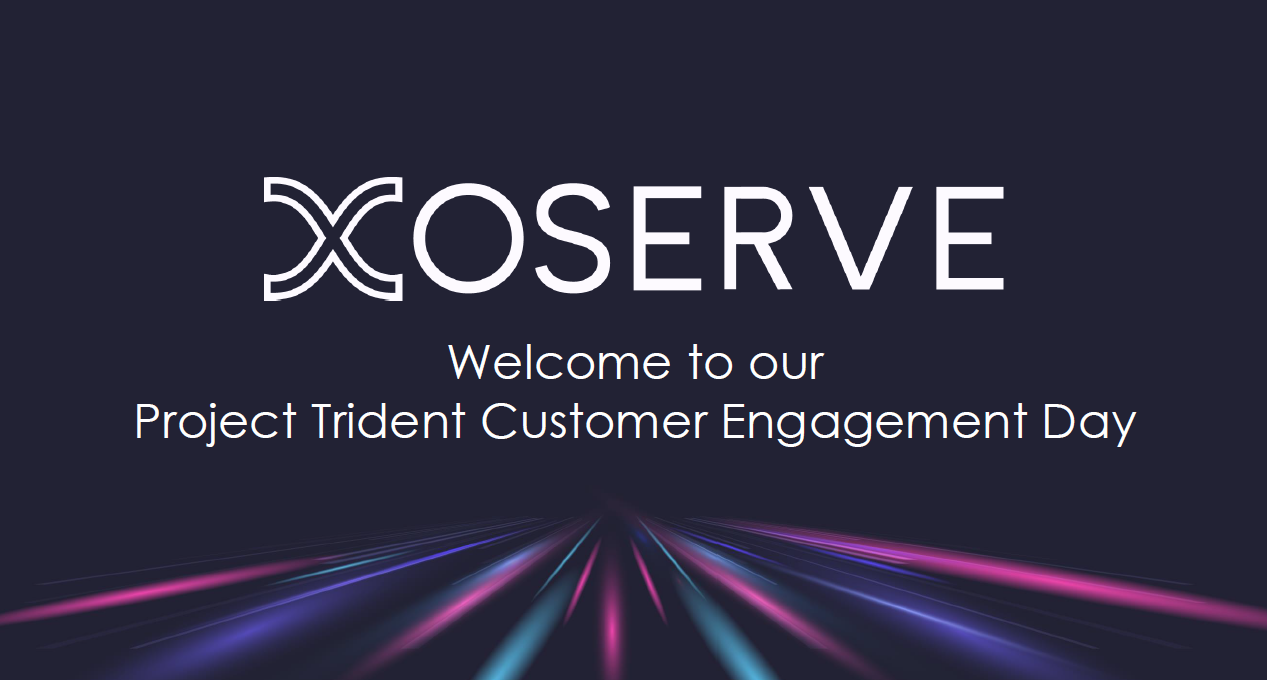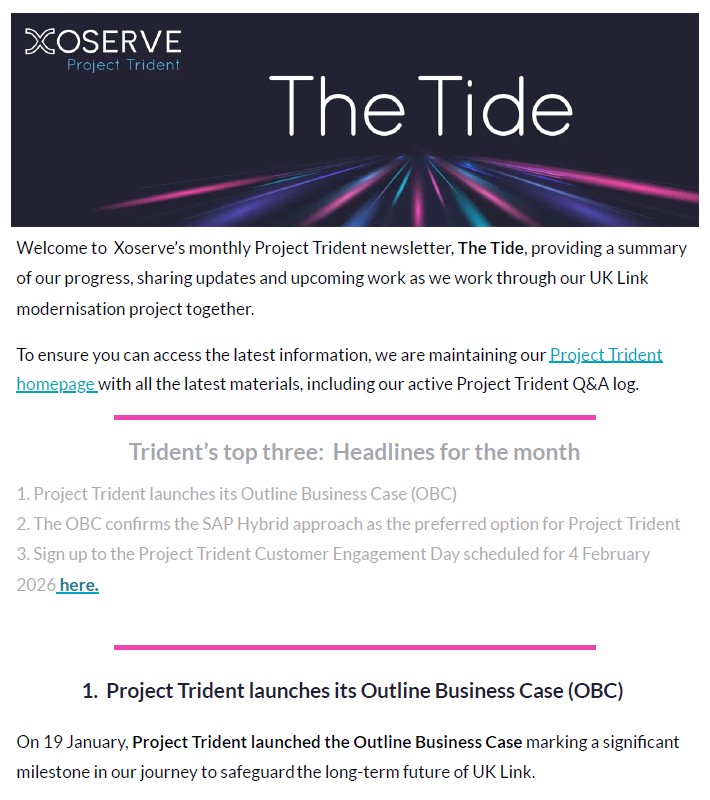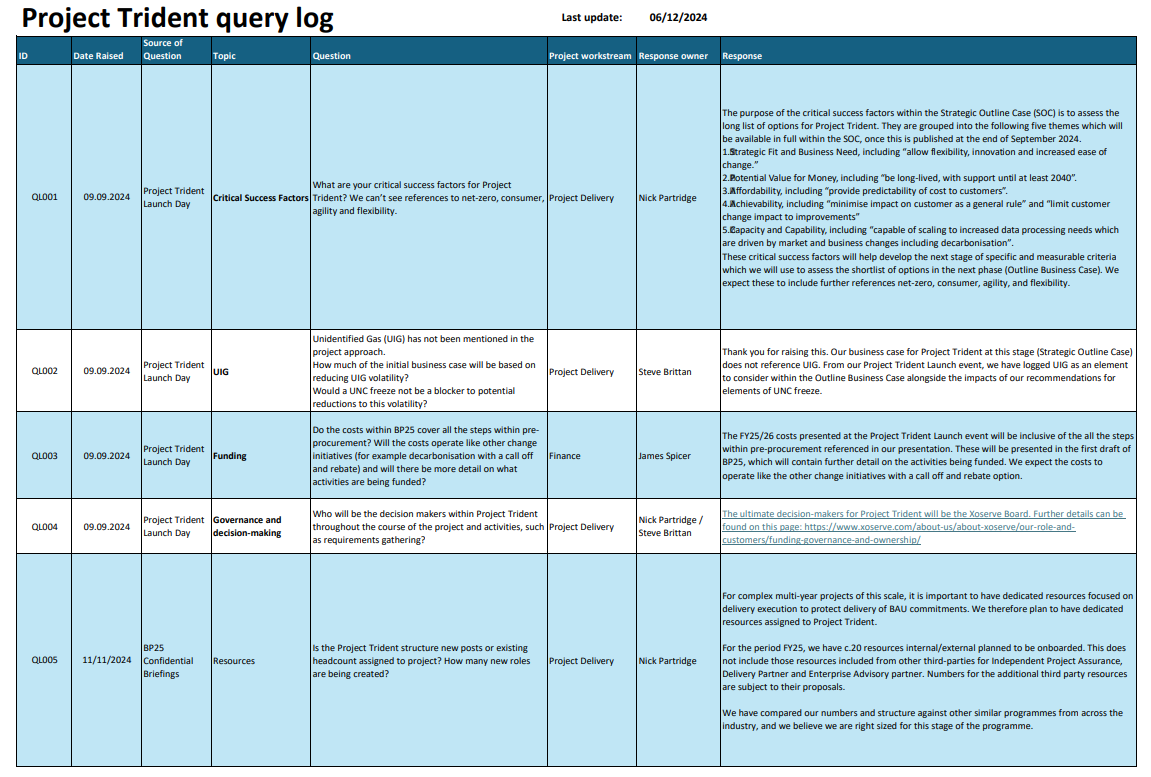Project Trident
Future-proofing the gas market's data infrastructure.
What is Project Trident?
Project Trident refers to a significant project of work to modernise UK Link, the platform we use to connect the complex information, technology and communications systems that are essential to the successful competitive retail gas market in Britain.
Support for the existing version of UK Link expires in 2027 and it will need to be upgraded or replaced with a new solution – one which will meet both current and future needs.
Whilst there is the option to extend support for the current UK Link until 2030, there is the risk of unsupported components, and we must consider current limitations and opportunities of UK Link functionality, including:
- Data processing capabilities
- Customisation and complex architecture
- Supply chain and organisational optimisation
The modernisation of the infrastructure will present opportunities to make service delivery more efficient and economical. But as with any large-scale technological transformation project, timing and smart planning will be crucial.
Learn about Xoserve's role as the Central Data Services Provider (CSDP) and how UK Link facilitates the associated obligations in our 'Introduction to Project Trident' document.
We began our initial research in July 2024 and estimate that Project Trident will run to 2028.
Up until July 2025, our focus was on developing the Full Business Case (FBC), procuring the most suitable solution against a set of critical success factors, broken into five themes:
- Strategic fit and business need
- Potential value for money
- Affordability
- Achievability
- Capacity and capability
The new solution will need to be long-lived and supported until at least 2040 or beyond.
This means it will need to meet both current and future needs and consider unknowns. These can range from the introduction of blending into the current gas network, to changes to the gas code that may require delivery during the next five years.

Project Trident timelines are being informed by our engagement with the market and procurement, as previously stated these are our indicative dates and have been refreshed as of Q4 2025, and will be developed further.
Outline Business Case
This Outline Business Case (OBC) is the latest phase of the HM Treasury Green Book Business Case process.
It is the second of three Business Cases that will be published for Project Trident and builds upon the information shared in the Strategic Outline Case (SOC) published in September 2024. It outlines the extensive engagement, analysis, and collaboration that have shaped the project to date.
-
 Project Trident Outline Business Case
Project Trident Outline Business CaseThe Project Trident Outline Business Case (OBC) is structured in accordance with HM Treasury’s Five Case ‘Green Book’ Model, providing a robust framework for decision making. It sets out the Strategic, Economic, Commercial, Financial, and Management cases for project investment, and outlines the next steps for the project before the development of the Full Business Case (FBC).
PDF, Last Updated 19/01/2026, 2.2 MB
-
 Project Trident Customer Engagement Day - 4 February 2026
Project Trident Customer Engagement Day - 4 February 2026Our Customer Engagement Day focused on ensuring Customers felt informed and engaged on the work undertaken to compile Project Trident’s Outline Business Case, how the decision was reached on the SAP Hybrid preferred option, and next steps as we move into the procurement phase.
PDF, Last Updated 11/02/2026, 923.4 KB
.
The Tide newsletter
Our monthly newsletter - The Tide - is our primary Project Trident update, designed to help raise awareness of the latest progress, activities, and collaboration opportunities.
You can find the latest version, along with our previous editions below.
-
 The Tide - Issue 15 January 2026
The Tide - Issue 15 January 2026Welcome to #15 of The Tide, Xoserve’s monthly newsletter, providing a summary of our progress, sharing updates and upcoming work as we navigate the waters of our UK Link modernisation project together.
PDF, Last Updated 28/01/2026, 375.2 KB
- The Tide - Issue 14 - December 2025
- The Tide - Issue 13 - November 2025
- The Tide - Issue 12 - October 2025
- The Tide - Issue 11 - September 2025
- The Tide - Issue 10 - August 2025
- The Tide - Issue 9 - July 2025
- The Tide - Issue 8 - June 2025
- The Tide - Issue 7 - May 2025
- The Tide - Issue 6 - April 2025
- The Tide - Issue 5 - March 2025
- The Tide - Issue 4 - February 2025
- The Tide - Issue 3 - January 2025
- The Tide - Issue 2 - December 2024
- The Tide - Issue 1 - November 2024
Questions about Project Trident
We're compiling a list of questions and queries our customers have asked about Project Trident.
In the list below you can find high-level common queries we're regularly asked.
The ultimate decision-makers for Project Trident will be the Xoserve Board. Further details can be found on our dedicated Funding, governance and ownership webpage.
This will be through the usual channels such as the Contract Management Committee (CoMC) as well as further confidential briefings if/when required.
Where Project Trident draws on resources, particularly human resources, it is important that we have created required capacity within Xoserve and its third-party providers to ensure that business as usual activities remain a focus and fully resourced.
We have therefore included costs for this to be achieved. As we move into later stages of design, build and implementation, we think it will become more important that the usual levels of change activities are slowed to free up further capacity for Xoserve, third party providers and customers alike.
In our Project Trident Query Log, we've also collated a comprehensive list of queries that we've received since the start of the project.
-
 Project Trident query log
Project Trident query logView this document to read the common queries we've received since the start of Project Trident.
XLSX, Last Updated 27/10/2025, 58.7 KB
Have a question?
If you have a question about the project that isn't covered above, you can email us via communications@xoserve.com.
Transparent decision-making and engagement
We know that our customers and stakeholders want assurance that they are receiving value for money and to see clear reasons for investment.
We will provide a robust investment proposal through the HM Treasury Green Book approach, as well as seeking agreement on critical success factors for the future solution.
In accordance with our principles of transparency and trust, we also want to provide visibility of upcoming milestones and options for how our customers and stakeholders might want to engage with Project Trident.
We will facilitate customer engagement sessions to capture feedback at all stages of the project.
If you have early feedback or would like to suggest other forms of engagement, please email us via communications@xoserve.com.
Customer Advisors: building credibility and stakeholder trust
We've launched independent Customer Advisors for our DSC customer base.
Bringing a customer perspective to the highest level of Project Trident governance, your Customer Advisors will build greater transparency, credibility and stakeholder trust in any Project Trident decision-making.
Read our Customer Advisor Launch document below, which shares more about Gareth and Matthew, highlights their responsibilities and explains how they will engage with you.
Document archive
In the following list, you can find additional documents we've shared with customers across the course of the project.
Related links
Xoserve and Project Trident services
We are preparing to start the procurement process for key service partners to support the delivery of Project Trident Core Services, and to provide specialist transformation services.
If your organisation is interested in supplying these services you can read more information in our news article.
Subscribe to The Tide - our monthly newsletter
Be the first to read the latest edition of our monthly newsletter, which highlights progress, activities and collaboration opportunities for Project Trident.
Essential reading
Want a quick summary?
We've collated key material below for essential reading about the project.
